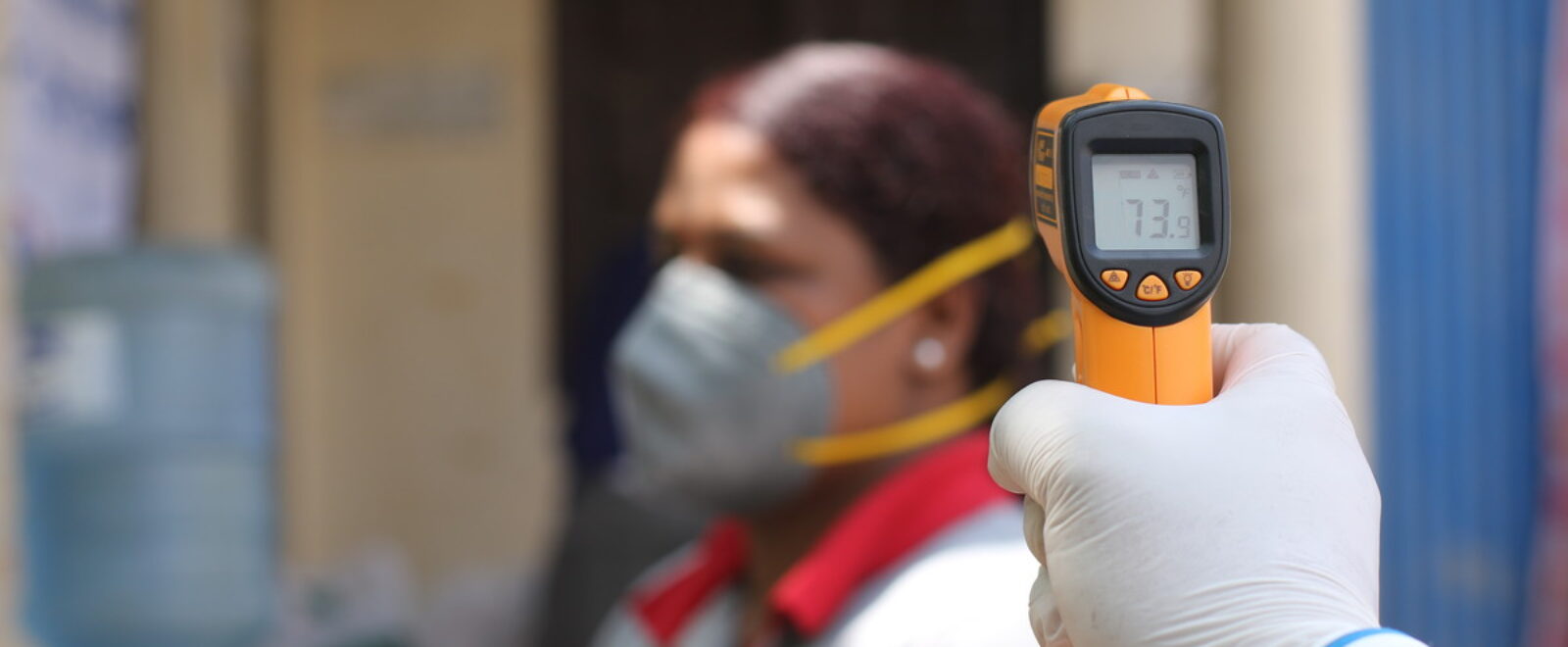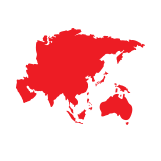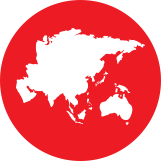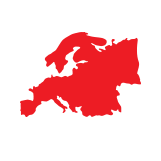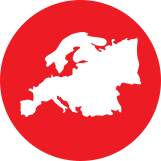As the coronavirus spreads, communities facing poverty and injustice are again on the frontlines of crisis. Many are already dealing with humanitarian emergencies – such as climate-related disasters, refugee crises and conflict, and food shortages – and are now potentially facing a mass outbreak of the virus like we’ve seen in other parts of the world.
As we learn more and more about the far-reaching effects of this virus, we are doubling down on our efforts to respond quickly. Building on decades of collaboration with local communities, ActionAid’s staff and partners around the world are launching emergency response to prevent illness, provide vital supplies, and fight for human rights in the midst of this pandemic.
Around the world response
Palestine
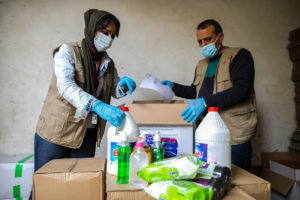
ActionAid Palestine volunteers putting together food parcels and preventive hygiene kits to distribute to women survivors of violence and abuse, and their families. Photo: ActionAid
In Palestine, we have joined efforts to promote young people’s leadership to prepare for and respond to the crisis. We are working with these young volunteers to distribute hygiene kits that include hand sanitizer, gloves, toilet paper, and soap.
Our response is focused on families in home quarantine, people who have contracted the virus, and the most vulnerable populations, especially women, whose economic security has been impacted the most from losing their livelihoods.
Thailand
In Thailand, we are working with a local partner to hold virtual workshops on best health practices and how to make hand sanitizer and cloth masks to prepare for a shortage of those items.
India
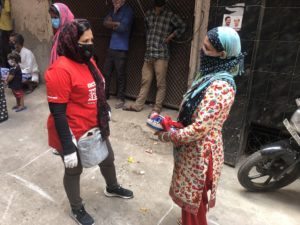
An ActionAid staff in India speaks with a community member. Photo: ActionAid
In India, where 1.3 billion people have been told to stay at home, we are distributing food packages, hot cooked meals, and hygiene kits to the most vulnerable families, including informal workers, such as domestic workers and street vendors, who will have no way to earn a living during the lock down.
Bangladesh
In Cox’s Bazar, Bangladesh, over 800,000 Rohingya refugees are living in densely packed camps with inadequate water and sanitation facilities. For years, ActionAid has run health and sanitation programs, distributed hygiene kits, and supported women as community health leaders in the refugee camps.
With inaccurate information reportedly making its way around the camps, we are already circulating approved public health messages through our women’s centers in the camps.
Liberia:
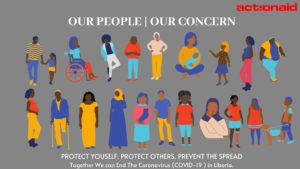
In Liberia, we are raising awareness of prevention and safe practices, providing vital supplies to meet basic needs, and combating gender-based violence – which is especially important in times like these when people are being asked to remain in their homes.
Partnering with local women’s rights organizations and rural women leaders, our efforts build upon our experience supporting a women and community-led response to the 2014-2016 Ebola outbreak.
“We’re calling on the government to ensure that access to justice and women’s protection are central to national response plans. Rape and other forms of sexual and gender-based violence spike during disease outbreaks. Women must be able to report cases during the pandemic and resources must be available to support survivors.”
– Lakshmi Subramani, Country Director, ActionAid Liberia.
Democratic Republic of Congo:
As in Liberia, we have extensive experience in implementing Ebola prevention measures when Ebola resurged in DRC in 2018-2019. We are continuously monitoring the situation and providing information to women’s groups in our partner communities.
Kenya:
In Kenya, we are distributing information and myth-busting leaflets to communities through a network of women’s collectives and community groups, especially in informal settlements, which are overcrowded and likely to be worst affected by the coronavirus outbreak.
Senegal:
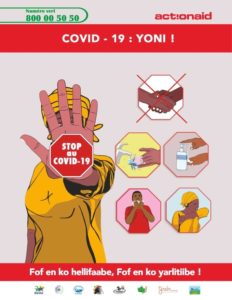
In Senegal, we are working with the local government to distribute flyers with health messages as well as hygiene kits with sanitation items such as bleach and soap.
Haiti:
As in Senegal, we are working closely with the Ministry of Health in Haiti to support the most vulnerable communities through the distribution of flyers with health messages. We are also spreading awareness on best practices to avoid the spread of COVID-19 through local radio.
Vanuatu:
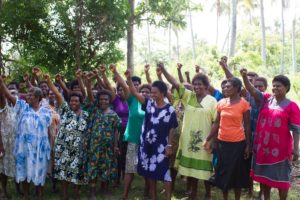
The Women’s Weather Watch in Vanuatu worked with the Ministry of Health to develop a text message in the local language Bislama to prevent the spread of COVID-19. (photo taken prior to the COVID-19 outbreak) Photo: Solaye Snider/ActionAid
In Vanuatu, women from our partner organization Women’s Weather Watch are using texting to communicate with communities across the island, spreading awareness about best practices to curb the spread of the virus.
How is COVID-19 affecting our work in the U.S?
Read our response to how the coronavirus is affecting our work and how we’re planning to continue.
